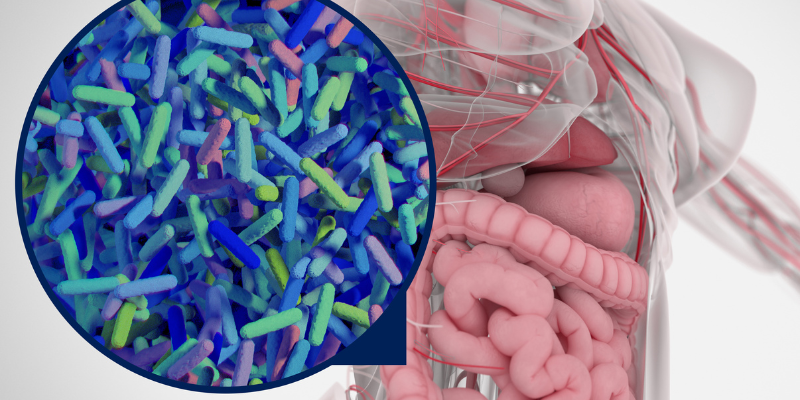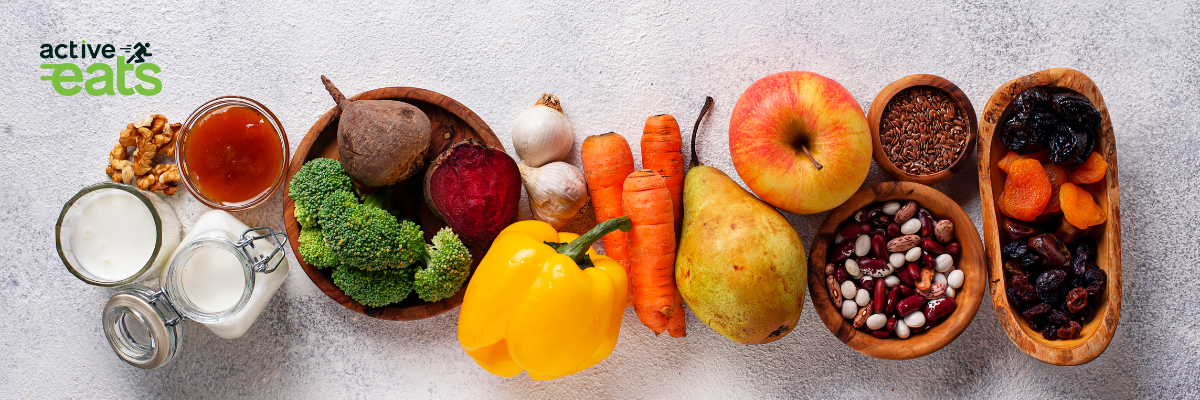Gut health is a topic that is often ignored but plays a crucial role in our overall health and well-being. The gut is our digestive system and it helps in breaking down food that we eat. This smaller and more digestible food releases nutrients through enzymes which supports our immune system. When our gut is disturbed, problems like inflammation can be seen. In this blog, we will learn how our gut is responsible for our physical as well as mental health, identify the warning signs of a poor gut, and discuss effective ways to improve and heal our gut in just one week.
Understanding Gut Health
The gut refers to the digestive system, which contains millions of microorganisms in the digestive tract, including beneficial bacteria which helps in digestion, nutrient absorption, and immune function. Any imbalance in gut enzymes leads to increase or decrease in gut bacteria which could result in digestive issues, inflammation, and other health problems. The more we understand our gut, more we takes good care of it which can improve your overall well-being and quality of life.
The Role of Gut Bacteria in Our Health

Gut bacteria, also known as the gut microbiota or microbiome, plays an important role in our body health. These bacteria helps in break down of food molecules into smaller simpler molecules and absorbs all the necessary nutrients from them and regulate our immune system.
Our gastrointestinal tract contains millions of bacteria, fungus, viruses and other microbes which resides mostly in colon. These microbes helps in breaking down complex carbohydrates which our digestive enzymes generally cannot digest. In the process, some of the bacteria produces vitamins like B and K. Through their lifecycle, gut microbes helps in development and training of our immune system.
Our gut also effects our mental health as there is a bidirectional communication system between the gut and the central nervous system which may influence mood, behavior, and cognitive function.
Imbalances in our gut bacteria contribute to conditions such as irritable bowel syndrome and obesity. By maintaining a healthy diet and lifestyle, we can support the growth of beneficial gut bacteria, ensuring that our digestive system functions optimally.
Why Gut Health is Crucial for Overall Well-being
A healthy gut is essential for proper digestion and absorption of nutrients. When your gut is functioning well, it can break down food effectively, extract the necessary nutrients, and eliminate waste efficiently. This process ensures that your body gets the fuel it needs to thrive.
In addition to digestion, gut health also influences other important bodily functions. A healthy gut microbiome supports a strong immune system, helping to protect against infections and diseases. Proper gut function is also linked to a healthy metabolism, helping to maintain a healthy weight and energy levels.
Poor gut health, on the other hand, has been linked to various health conditions, including allergies, autoimmune diseases, and mental health disorders. Digestive discomfort, such as bloating, gas, and irregular bowel movements, are common signs of an imbalanced gut. Chronic inflammation that stems from gut issues can also contribute to a range of health problems.
By taking care of your gut health, you can improve your overall well-being. A healthy gut can boost your energy levels, support a stable mood, and enhance your quality of life. It’s a key pillar of overall health that should not be overlooked.
Recognizing the Warning Signs of Poor Gut Health
Common warning signs of poor gut health include bloating, gas, and irregular bowel movements.
Digestive issues like heartburn, constipation, and diarrhea can indicate gut imbalances.
Food intolerances, skin problems, and frequent infections may be linked to poor gut health.
Chronic fatigue, mood swings, and brain fog can also be symptoms of gut imbalances.
If you experience these symptoms, it’s important to take steps to improve your gut health.
Exploring the Gut-Brain Connection: Gut Health and Mental Health
The gut and brain are connected through the gut-brain axis, influencing mood and mental health. Research suggests that an unhealthy gut can contribute to the development of mental health conditions like anxiety and depression.
Interestingly, the gut microbiome has the ability to produce neurotransmitters, such as serotonin and dopamine, which play a crucial role in regulating mood and cognition. Therefore, maintaining a healthy gut is not only important for physical well-being but also for mental wellness.
If you’re experiencing mental health symptoms, it may be beneficial to focus on improving your gut health. Making dietary and lifestyle changes can help promote a healthier gut microbiome, potentially alleviating some mental health symptoms.
The gut-brain connection is complex, and more research is still needed to fully understand the relationship between gut health and mental health. However, prioritizing and taking steps to improve your gut health is a valuable aspect of overall well-being.
Effective Ways to Improve Your Gut Health
When it comes to improving your gut health, there are several effective strategies you can implement:
- Eat a balanced diet rich in fiber, fruits, vegetables, and fermented foods. Fiber is essential for proper digestion, and it also acts as a prebiotic, providing food for the beneficial bacteria in your gut. Fruits, vegetables, and fermented foods like yogurt and sauerkraut are particularly beneficial for gut health.
- Stay hydrated. Drinking enough water helps promote proper digestion and ensures that your gut functions optimally.
- Reduce stress levels. Chronic stress can negatively impact your gut health. Incorporate relaxation techniques such as meditation, deep breathing exercises, or yoga into your daily routine. Regular exercise and self-care activities like taking a bath or reading a book can also help reduce stress levels.
- Get enough sleep. Sleep plays a vital role in maintaining a healthy gut and overall well-being. Aim for 7-9 hours of quality sleep per night.
- Consider taking probiotic supplements. Probiotics are beneficial bacteria that can help support a healthy gut microbiome. Consult with a healthcare professional to determine which probiotic supplement is best for you.
By incorporating these habits into your lifestyle, you can improve your gut health and enjoy the benefits of a well-functioning digestive system.
Discover the Best Gut Healing Fruits and Foods
When it comes to improving your gut health, incorporating certain fruits and foods into your diet can make a significant difference. Here are some of the best options:

1. Fiber-Rich Fruits
Fruits that are high in fiber are excellent for promoting a healthy gut. Some of the top choices include:
- Bananas: Packed with fiber and potassium, bananas can help regulate digestion and support a healthy gut.
- Berries: Blueberries, raspberries, and blackberries are not only delicious but also rich in fiber and antioxidants that promote gut health.
- Kiwis: These small fruits are a great source of fiber and vitamin C, known for their digestive benefits.
2. Nutrient-Dense Greens
Leafy greens are packed with essential nutrients and are great for gut health. Consider adding these to your diet:
- Spinach: Spinach is loaded with vitamins, minerals, and fiber, making it an excellent addition to your gut-healing arsenal.
- Kale: Rich in antioxidants and fiber, kale supports a healthy gut and provides numerous health benefits.
3. Fermented Foods
Fermented foods are known to replenish beneficial gut bacteria. Here are some popular options:
- Yogurt: Choose plain, unsweetened yogurt that contains live cultures, such as Lactobacillus and Bifidobacterium, for optimal gut health.
- Sauerkraut: Made from fermented cabbage, sauerkraut is a probiotic-rich food that can strengthen your gut microbiome.
- Kimchi: A traditional Korean dish, kimchi is packed with probiotics and various spices, making it a flavorful choice to support gut healing.
4. Gut-Healing Ingredients
Incorporating the following ingredients into your cooking can aid in gut healing:
- Bone Broth: Bone broth is rich in amino acids and collagen, which have anti-inflammatory properties and support gut health.
- Ginger: Known for its anti-inflammatory benefits, ginger can help soothe and heal the gut.
Remember, variety is key when it comes to supporting a healthy gut. Including a colorful array of fruits and vegetables in your diet ensures you receive a diverse range of nutrients and promotes optimal gut health.
Conclusion

Taking care of your gut health is crucial for overall wellbeing and quality of life. The gut plays a vital role in digestion, nutrient absorption, immune function, and even mental health. Imbalances in gut bacteria can lead to various health problems, but with the right steps, you can improve your gut health.
By maintaining a balanced diet rich in fiber, fruits, vegetables, and fermented foods, you can support the growth of beneficial gut bacteria. Staying hydrated, reducing stress levels, and getting enough sleep also contribute to a healthy gut. Consider incorporating probiotic supplements to further support a healthy gut microbiome.
Additionally, including gut healing fruits and foods in your diet such as bananas, berries, leafy greens, fermented foods, bone broth, and ginger can aid in gut healing and reduce inflammation.
Recognizing the warning signs of poor gut health, such as digestive issues, food intolerances, and frequent infections, is crucial. By addressing these symptoms and making necessary changes to improve your gut health, you can enhance your overall wellbeing, energy levels, and mood.
Remember, a strong gut-brain connection is also vital for mental wellness. Improving gut health through diet and lifestyle changes can positively impact mood and alleviate symptoms of mental health conditions like anxiety and depression.
So, start prioritizing your gut health today and reap the benefits of better digestion, improved energy, and overall wellbeing. Reset your gut in just one week and experience the positive impact it can have on your life.


Top 20 Medicinal Foods You should Know About | Coach Active Eats
[…] Medicinal Foods for Gut Health […]